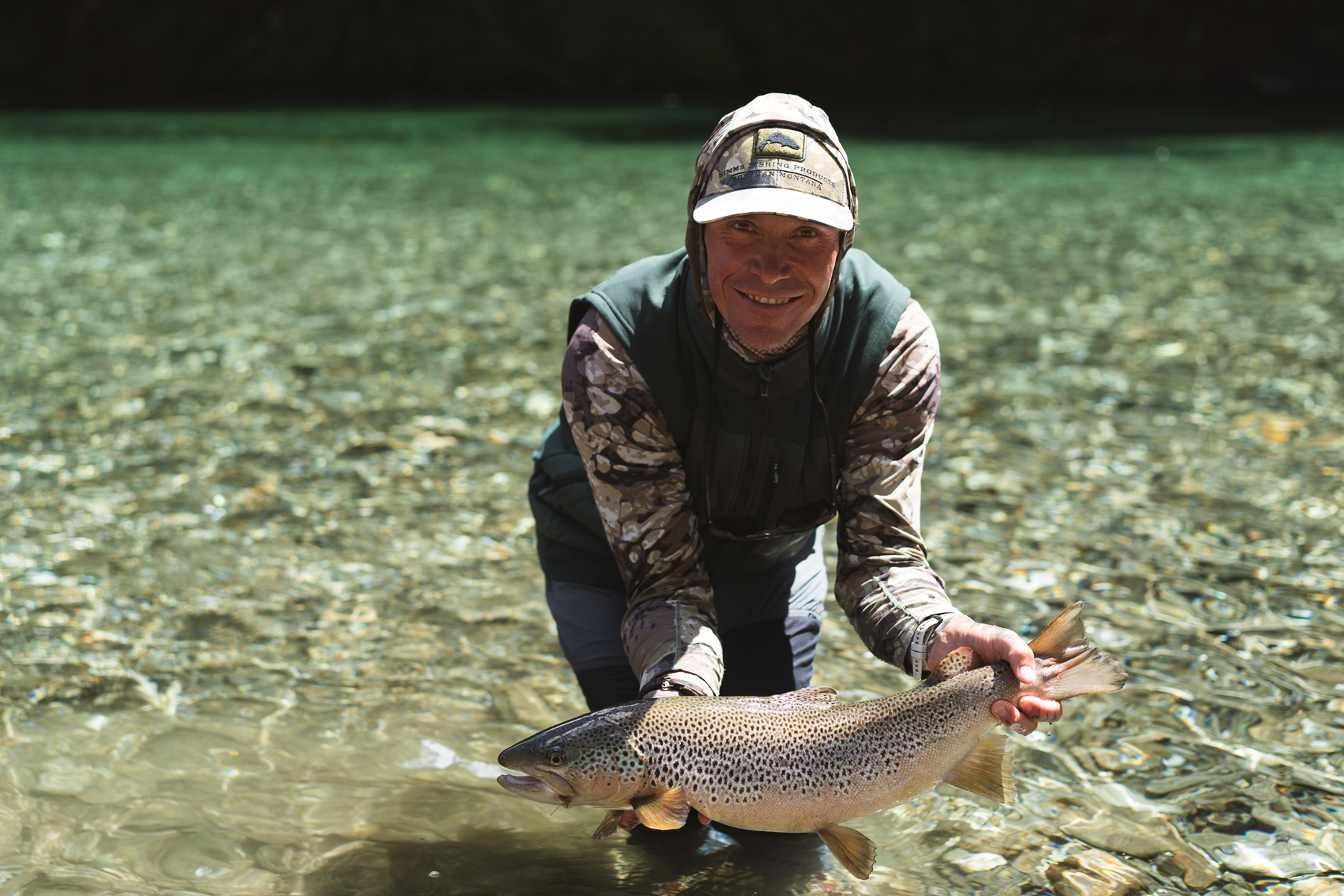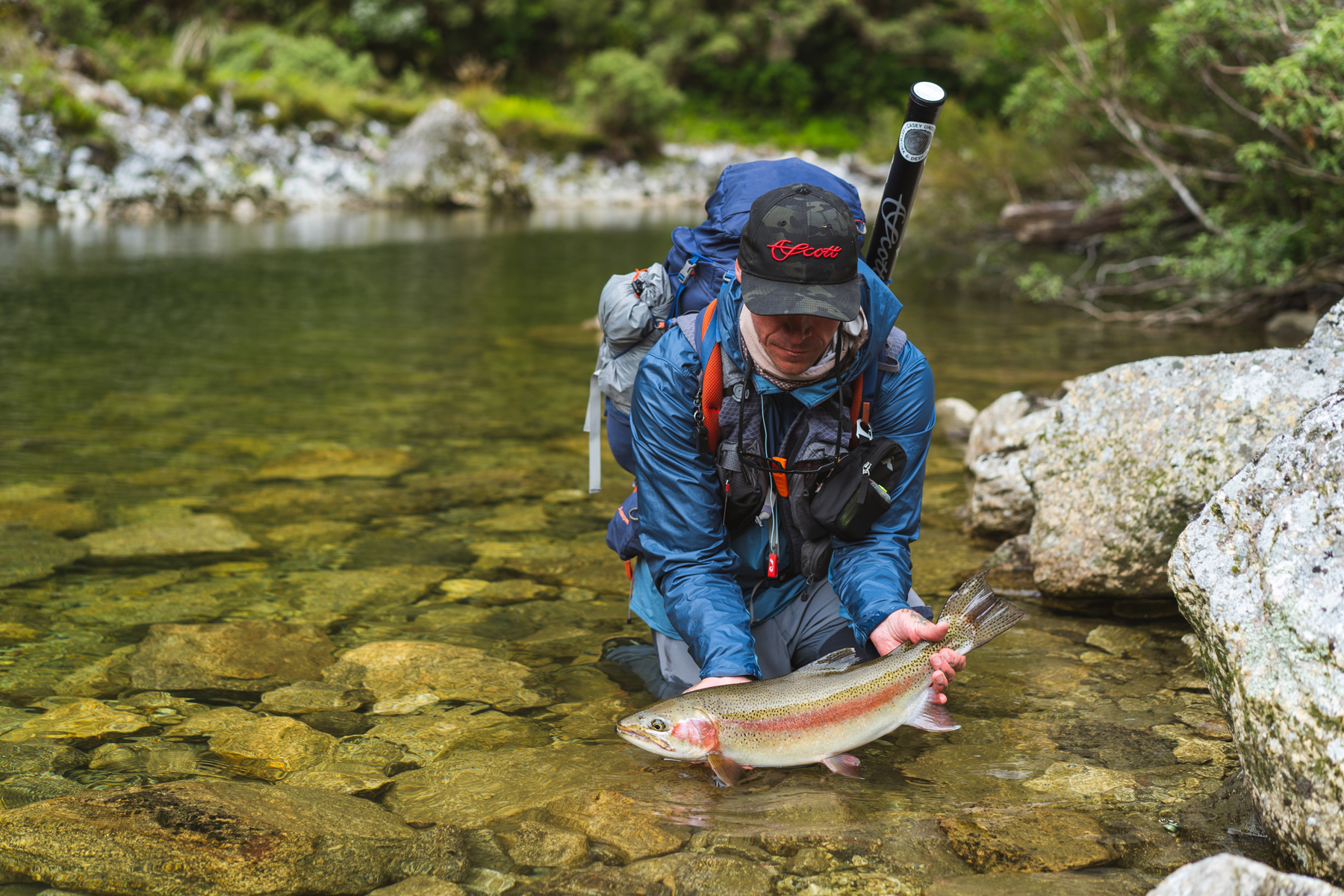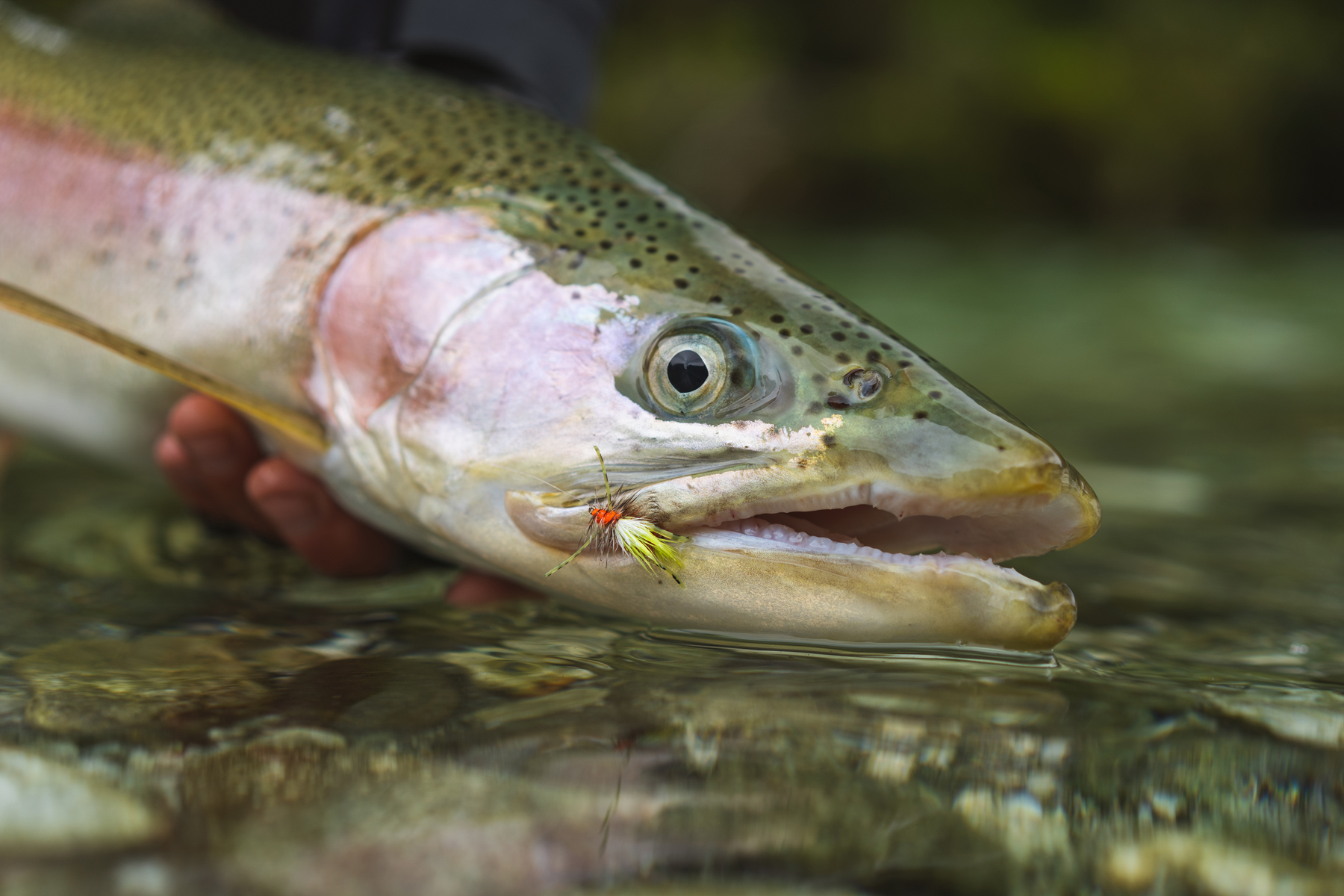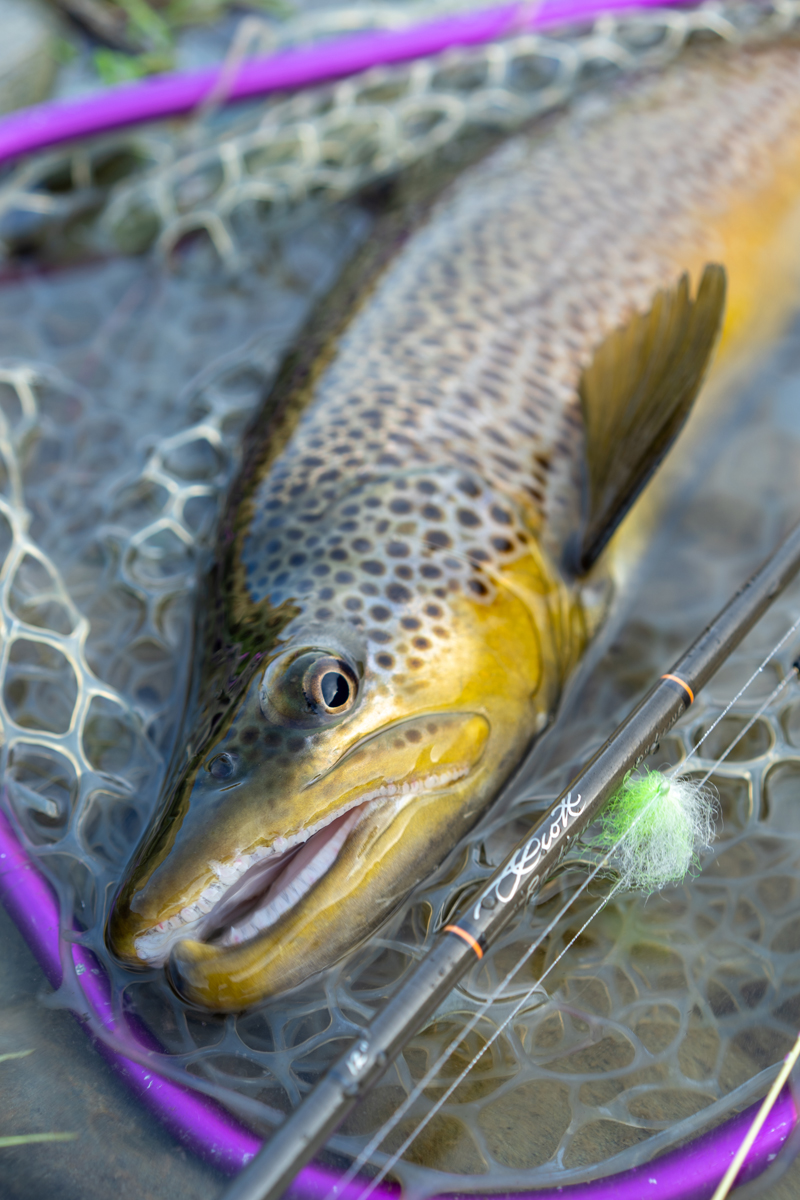
8 minute read
Angling Etiquette: Golden Rules for Fly Fishing New Zealand
Without a doubt, New Zealand offers some of the best trout fishing in the world. The North Island and South Island are well known for excellent freshwater fishing while being surrounded by magnificent scenery and providing opportunities to catch brown trout, rainbow trout and salmon in some incredibly pristine waters. The quality and diversity of New Zealand’s freshwater, while being able to roam free, is perfect for the fly fishing purist. On the river, there is an unspoken code that the vast majority seem to follow.
By JAKUB KANOK

There should be no need to mention this subject, but some anglers unfortunately do not demonstrate courtesy. A fisherman, not just on a backcountry river but any river or lake, will not appreciate the trout being scared off by a disturbance. Every fishery is unique in its way. Some rivers require kilometres of undisturbed water to enjoy a day of fishing, while other fisheries can handle pressure well due to many different factors. At times, we come across unsettling second-hand stories while some of us sadly experience them first-hand. I have noticed a significant increase in these unpleasant experiences over the last two years, before and after the return of international anglers. Golden Rule, precept in the gospel of Matthew (7:12): “In everything, do to others what you would have them do to you…”
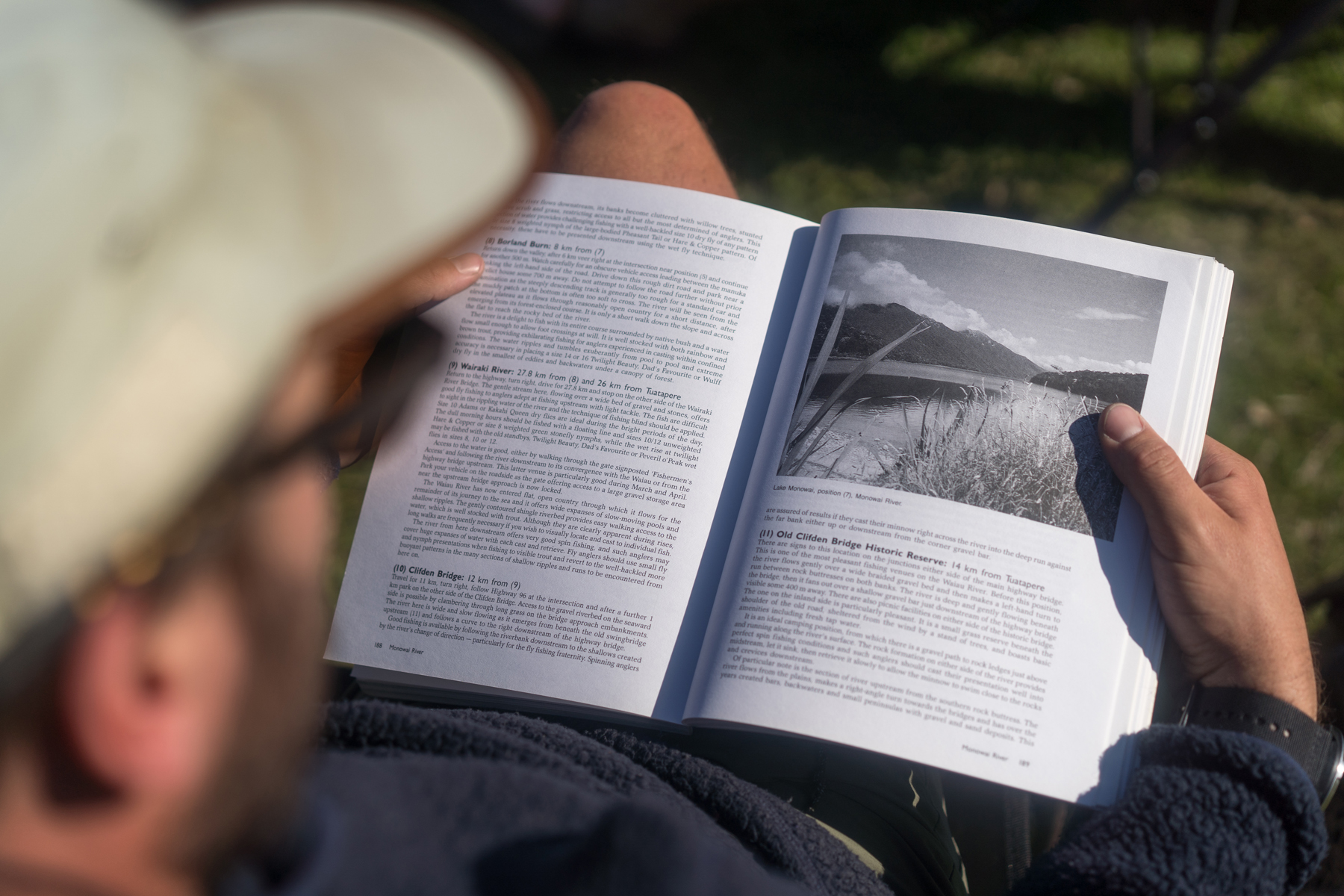
When it comes down to fishing, familiarize yourself with the angling etiquette guidelines and detailed regulations on the Fish & Game New Zealand website and keep the day enjoyable for all.
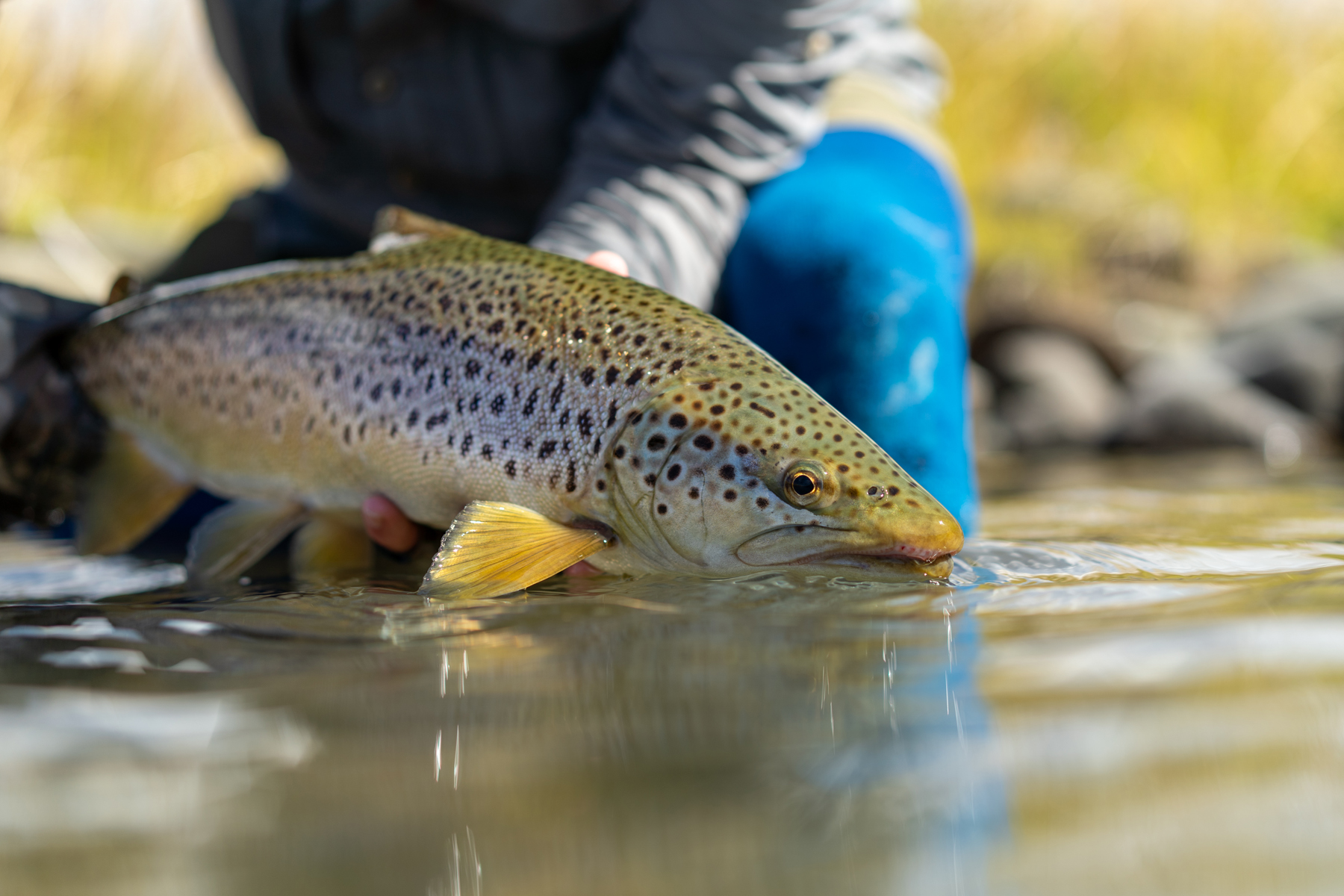
If you see another vehicle upon your arrival, check the windscreen for a note as to their intentions and abide by them. Leave a note on yours advising whether you are fishing upstream or downstream, and if you are on an overnight backcountry trip, leave an even more detailed message. Leaving a note with your intention also greatly increases the chances of others finding you in case of an emergency.
PLEASE DO NOT push in front of or discreetly ‘drop in’ or ‘jump’ upstream of another angler. In New Zealand, this is the ultimate sin, and in all cases needs to be avoided.
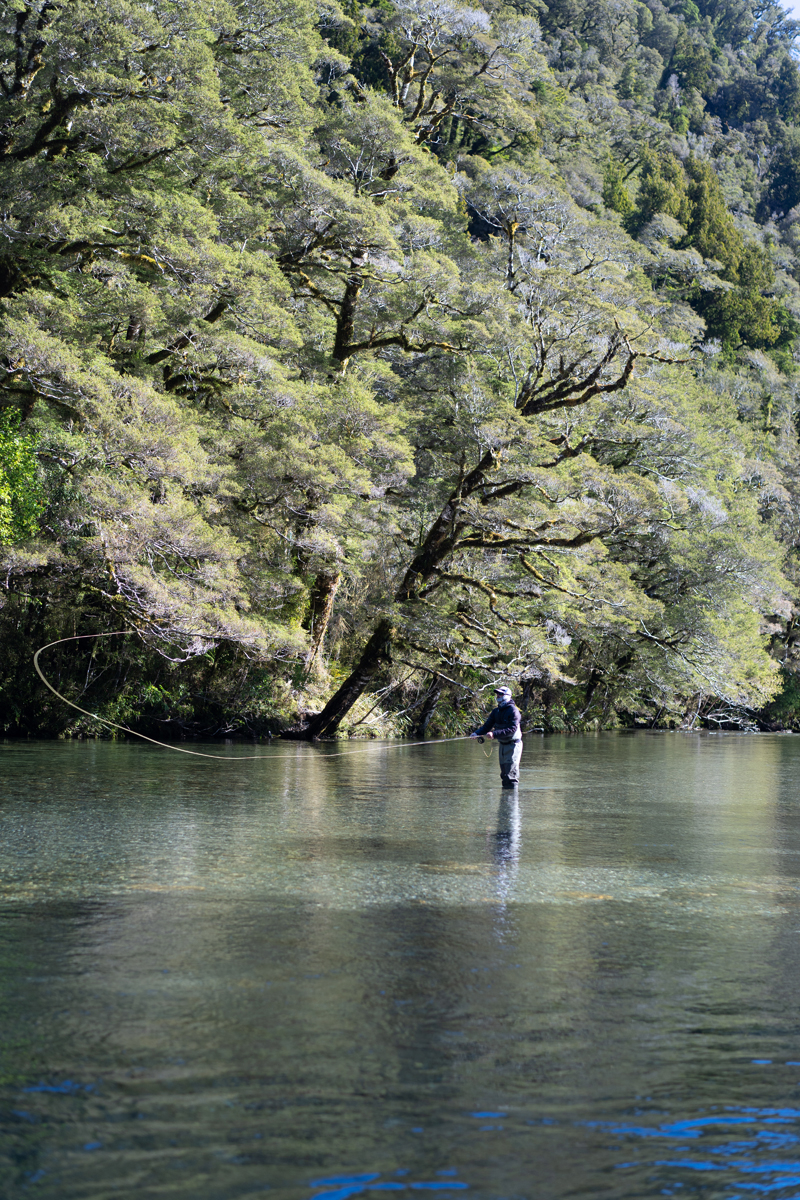
If, for any reason, you need to approach another angler or an angling party who is currently fishing or just rigging up, do so quietly but politely, keeping well back from the water whilst signaling your intentions. A smile goes a long way. Have a chat. Maybe the other angler is there to fish only for a couple of hours at a slow pace and will happily let you go further upstream if you give him enough space.
If fishing solo, consider inviting an angler you meet to fish with you, sharing the available water or suggesting alternative options/locations. You might both benefit from the situation and, in some cases, potentially start a new friendship. At times, it may be better to just slow down and fish behind someone without pushing them or interfering in any way with their fishing. Or, if possible, relocate to another access point or stream.
Please always be courteous to other anglers, and hopefully, that will be reciprocated when the roles reverse.
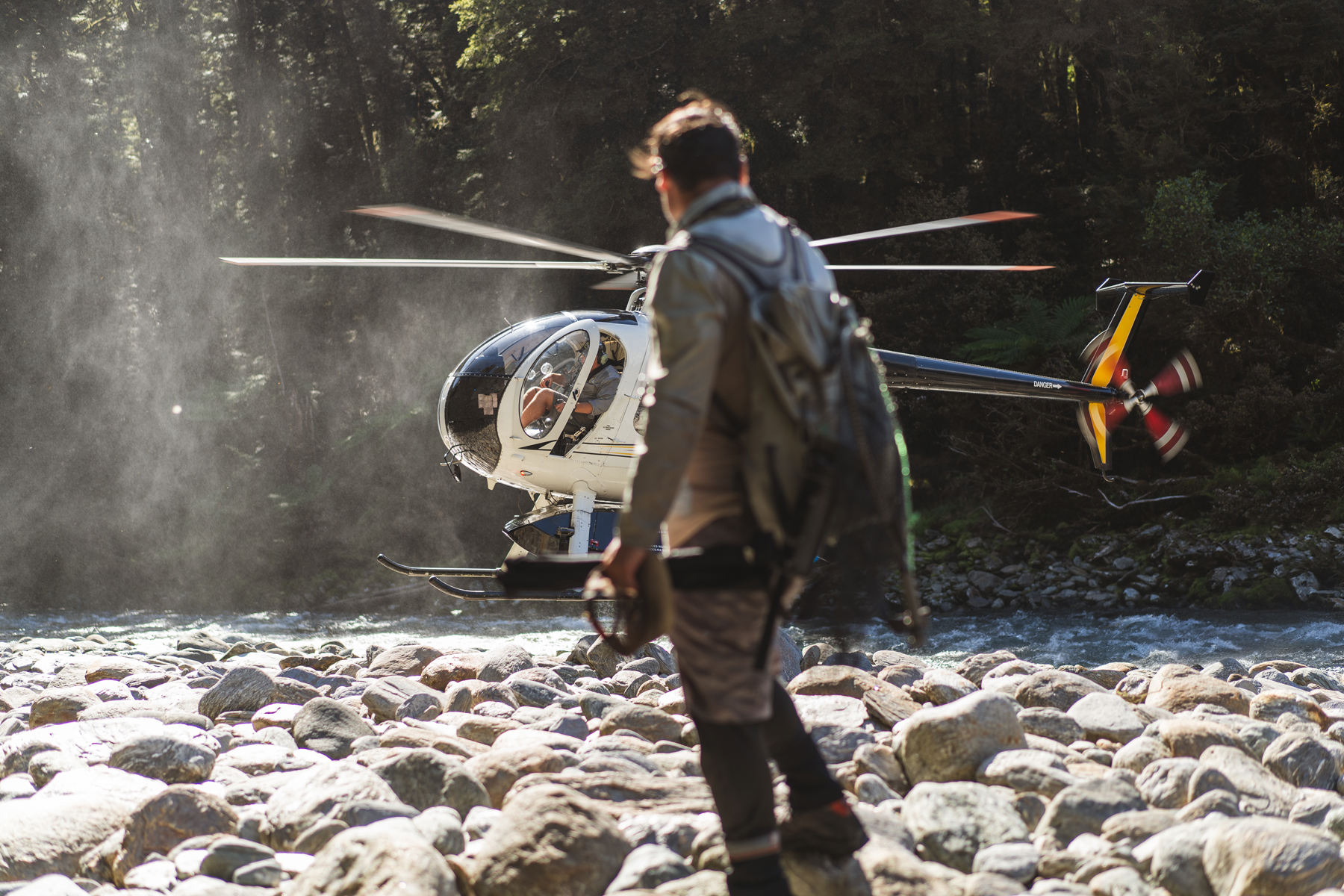
Quick Tips for better angling experience:
• If in doubt, it ain’t right.
• Have multiple options lined up and be ready to relocate. Don’t forget about the lakes, as these offer fantastic angling opportunities on certain days.
• Stay visible, especially when fishing in a very remote backcountry. If you hear a chopper, do everything you can to be seen. I carry a high-visibility vest just in case, and this has saved me from being flown over on multiple occasions. If they can’t see you, they don’t know you are there.

• Don’t be afraid to fish second-hand on backcountry rivers, as it might be your only option at times. It’s not the end of the world. Whilst this is, of course, not the ideal scenario, you would not believe what gets missed. A big portion of anglers rush through the gin-clear water, trying to just spot the fish. Slow down, fish all likely looking water. Undercuts, deep riffles and shady places are usually productive. Remember, the light changes throughout the day and with it does the visibility.
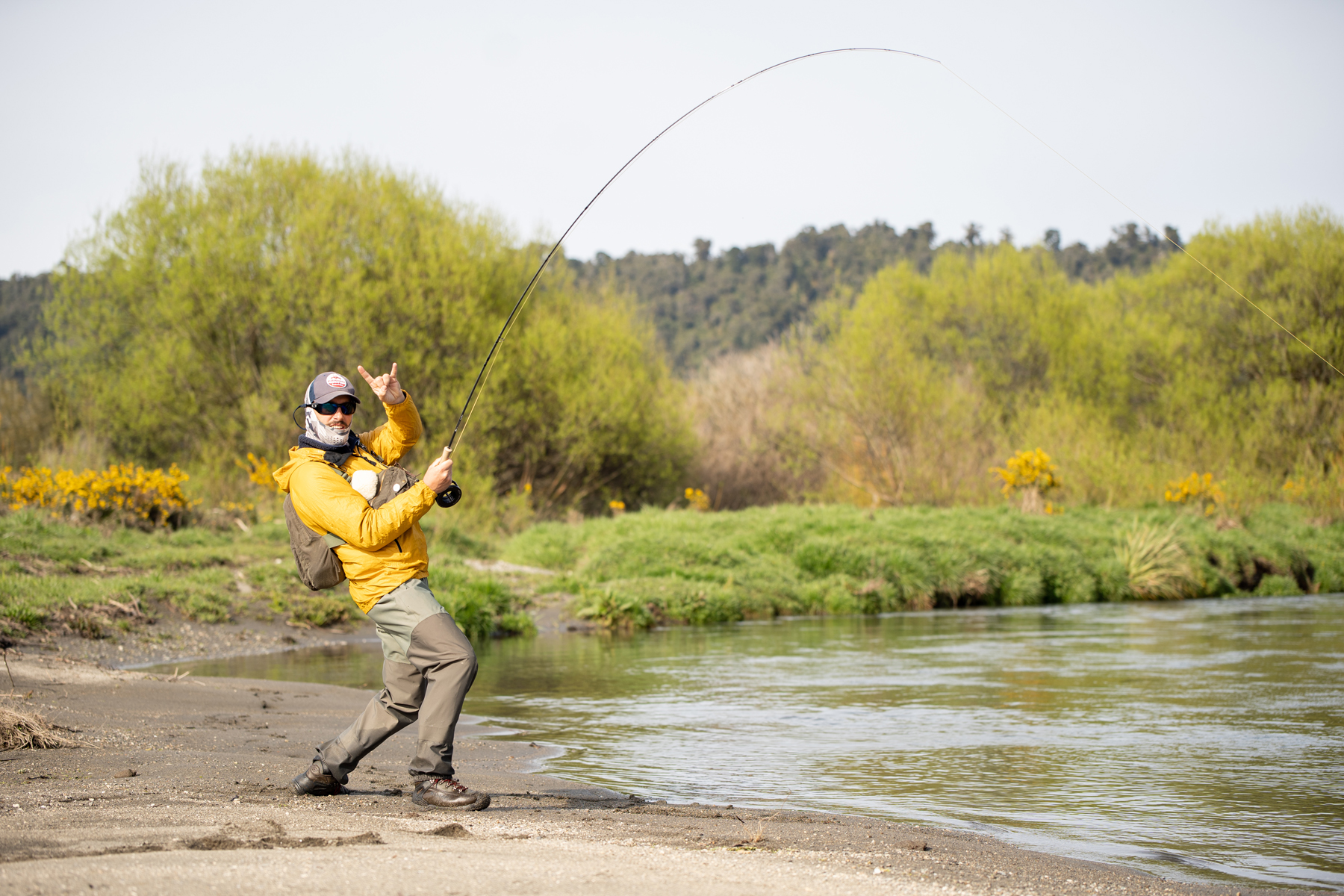
• Let go of anger. Educate and learn from the situation.
• While out on overnight trips, do not fish back downstream at the end of your trip. Pack your gear and walk out. Someone might be fishing up.

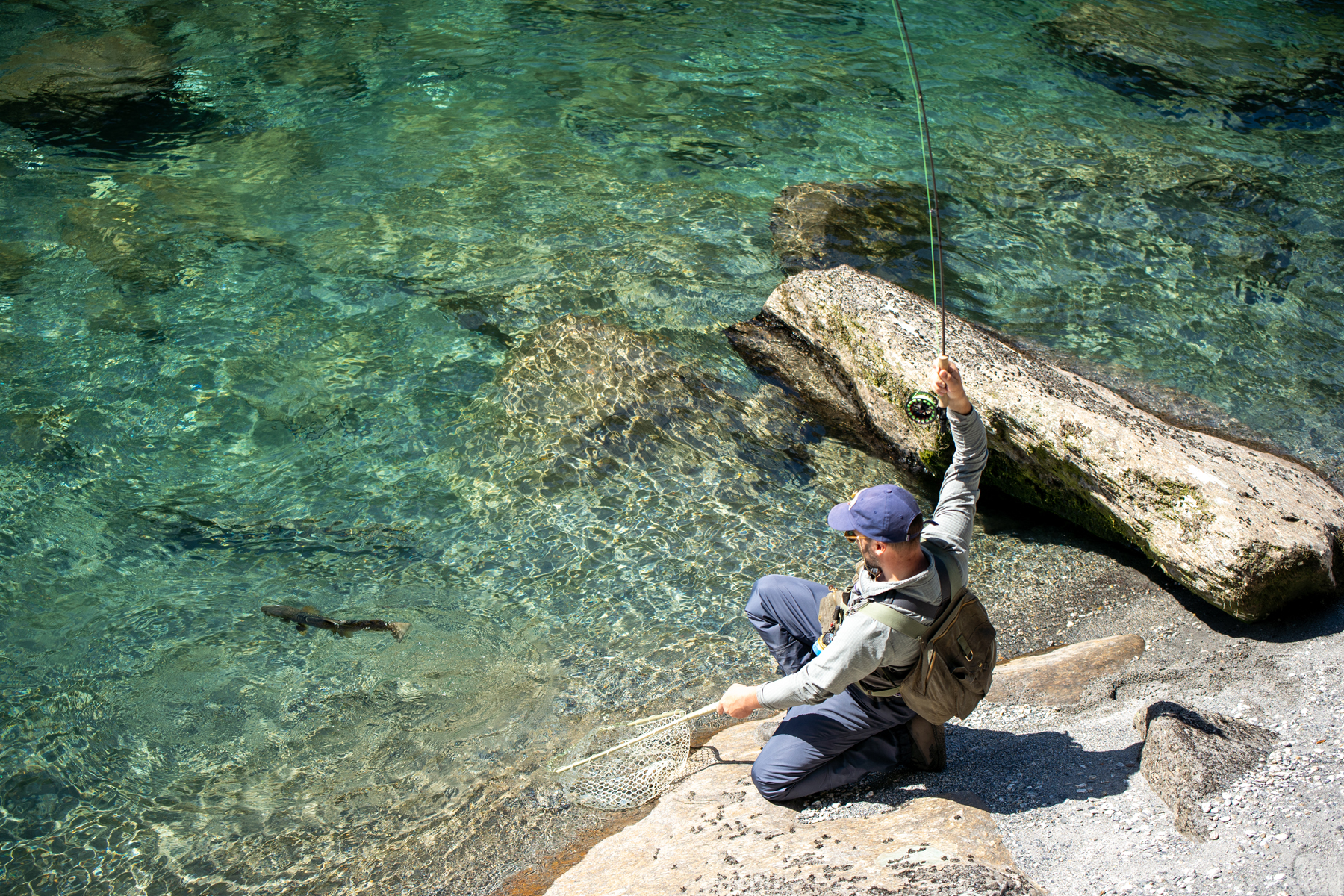
Rights of access
The majority of rivers cross private land, and the rights of the landowner must be well respected. Do ask the owner’s permission before crossing their land. Very rarely is permission denied when asked for. Respect the landowner’s property and obey all signage unless discussed otherwise. Leave everything as you found it. If a gate is open, leave it that way. Likewise, if it is closed, leave it closed, avoid disturbing stock, stick to the designated roads/trails and don’t forget to offer thanks and goodbyes on your way out if possible.
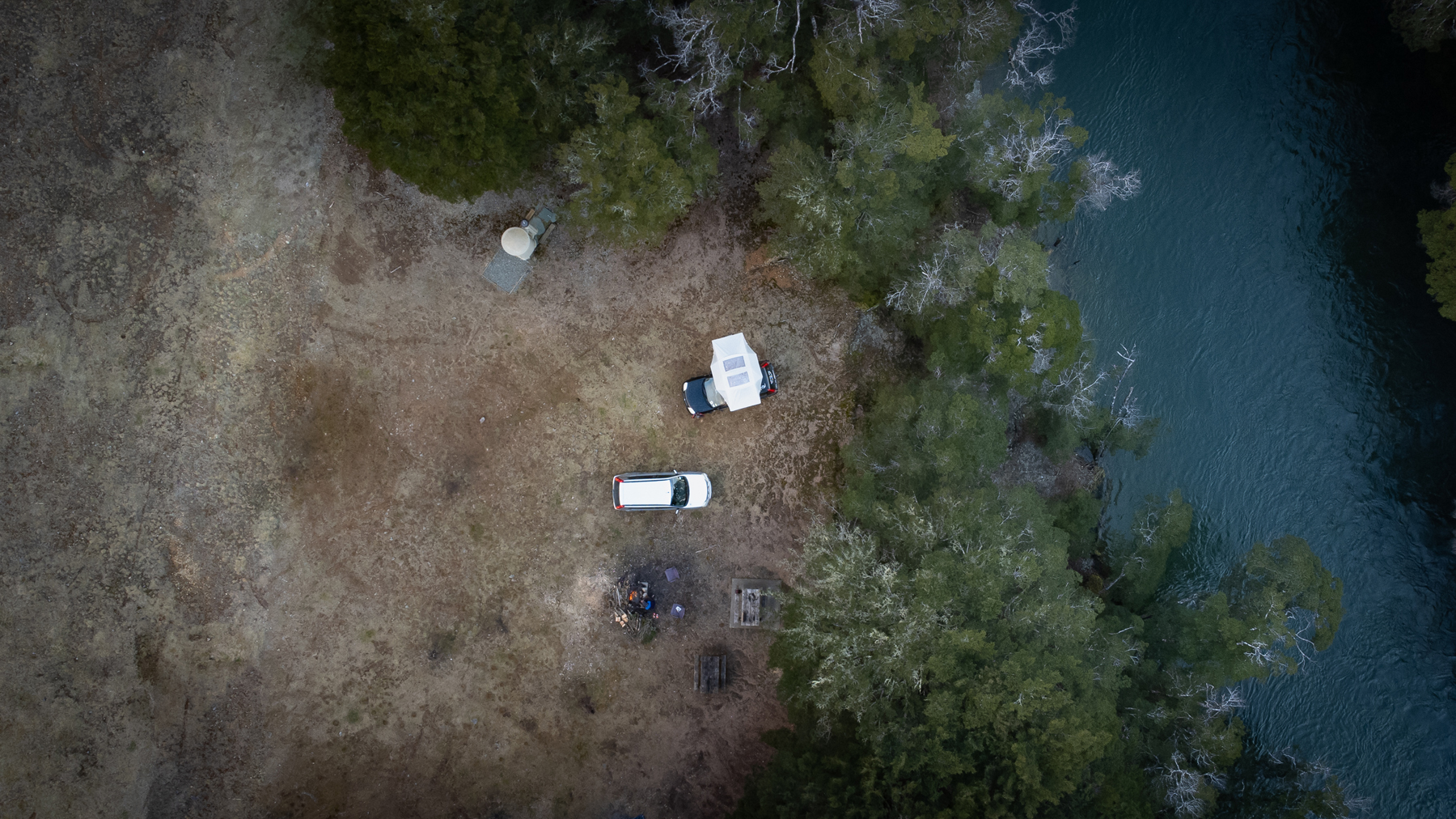
Our ability to continue to have free access to crossing land is dependent on farmers and other landowners being able to trust that we, as anglers and guests on their land, will behave in a safe and responsible manner. New Zealand’s rivers and lakes are priceless assets that must be preserved for future generations.
When parking at Fish & Game designated access points, please follow the instructions on the signage and, as previously mentioned, leave a note with your intentions. There’s nothing worse than arriving at a long stretch of productive water capable of entertaining multiple anglers, finding a vehicle parked, and not knowing which way the angler has gone.
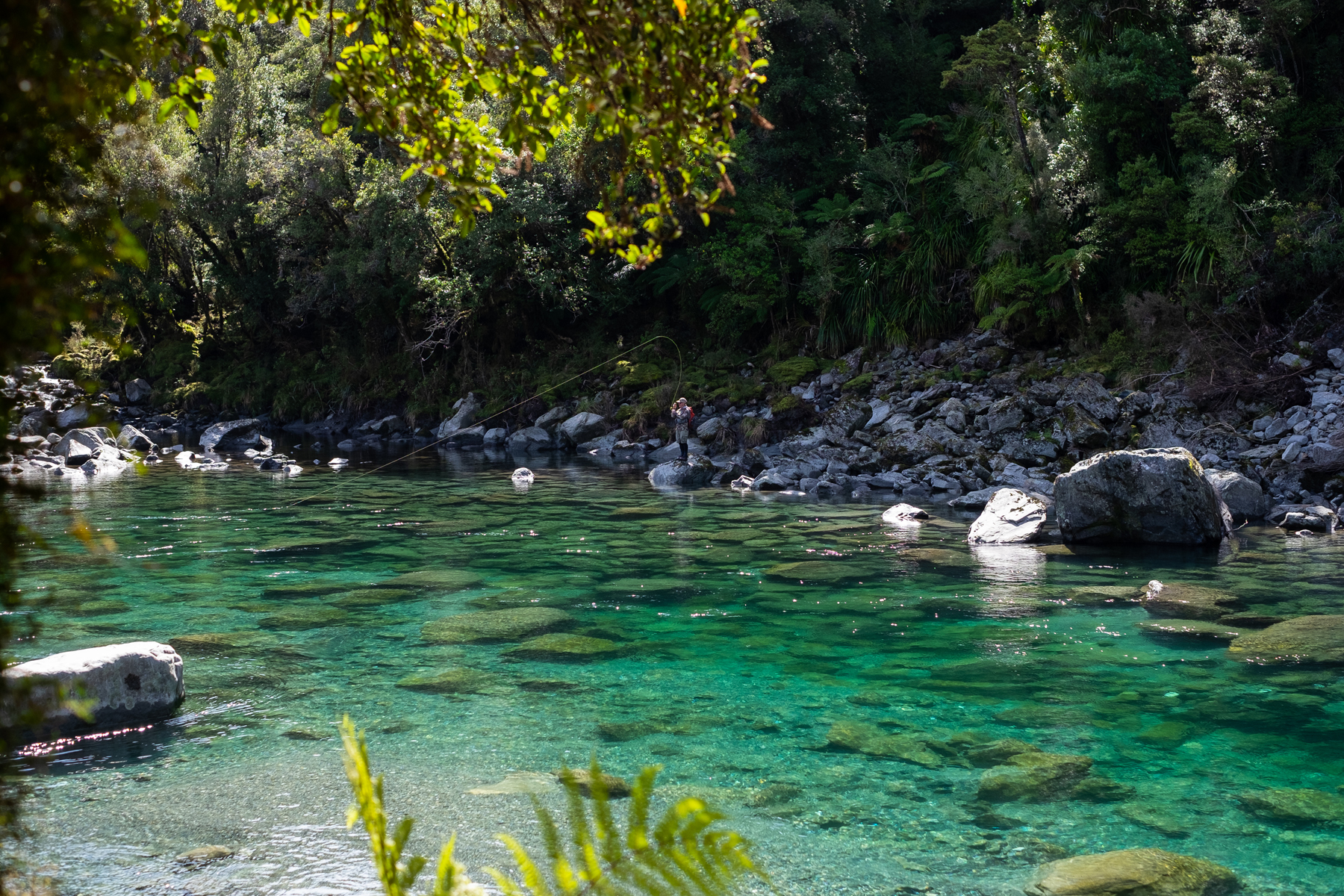
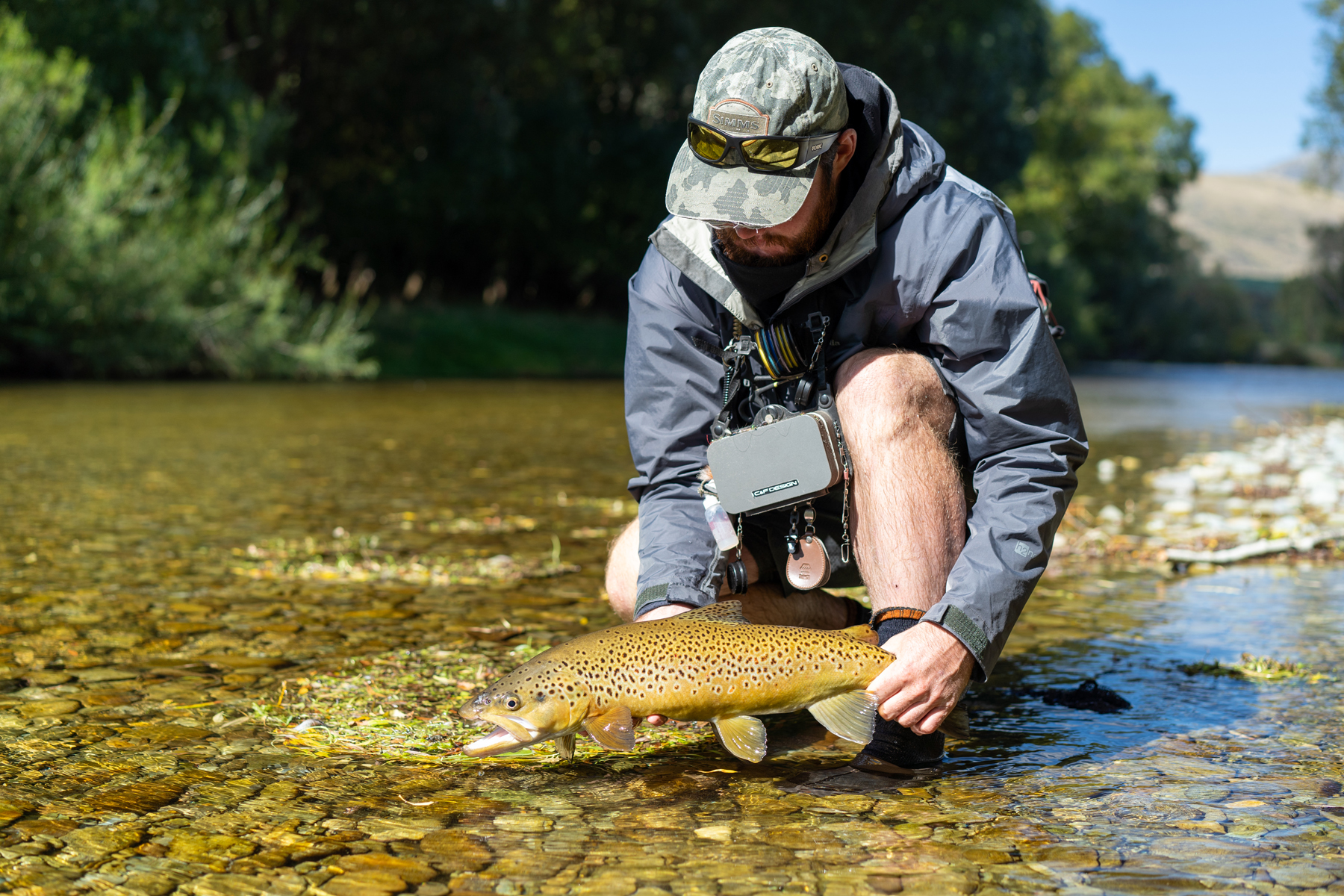
It is possible to overstay your welcome by repeatedly fishing the same stretch of water or staying too long in designated camping spots or huts. Not only does this severely affect the fishery, but it can upset the local as well as the angling community. Camping at access points or along the riverbank does not mean you have the right to claim the spot, and is often not permitted at many locations.
Do not hesitate to contact the local Fish & Game Council when problems arise.
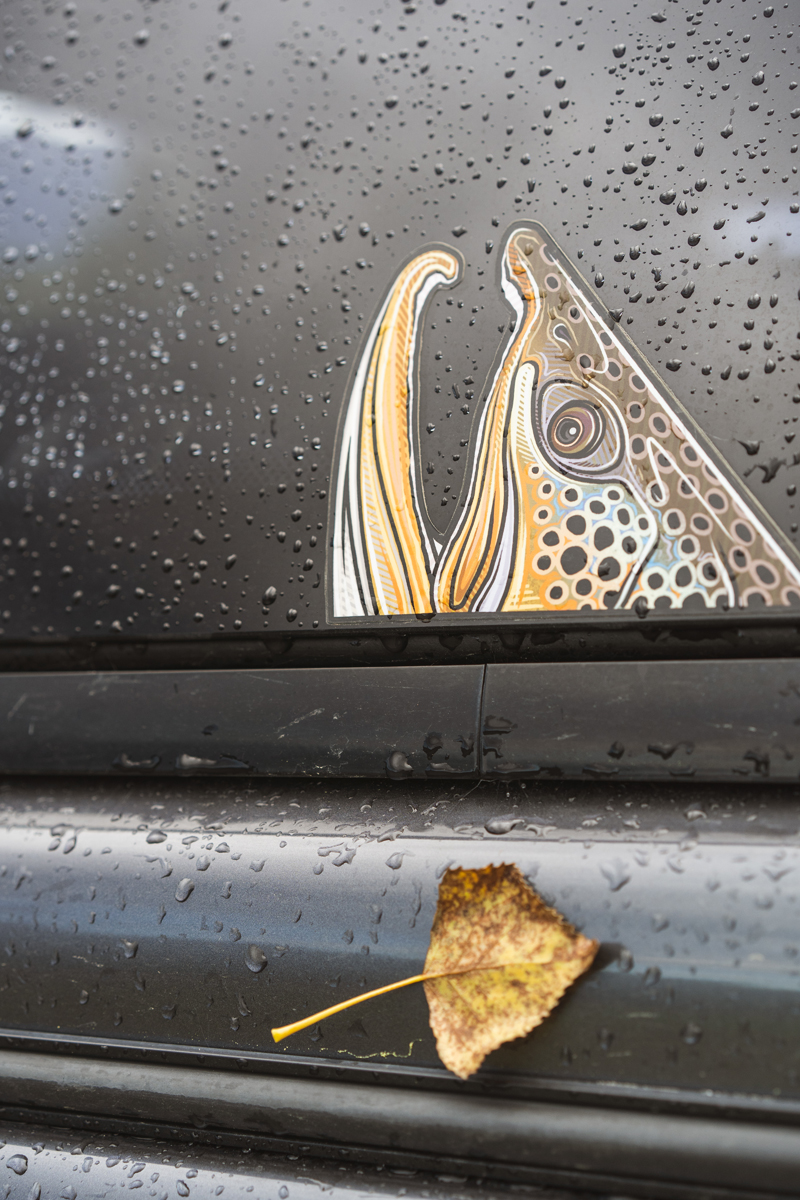
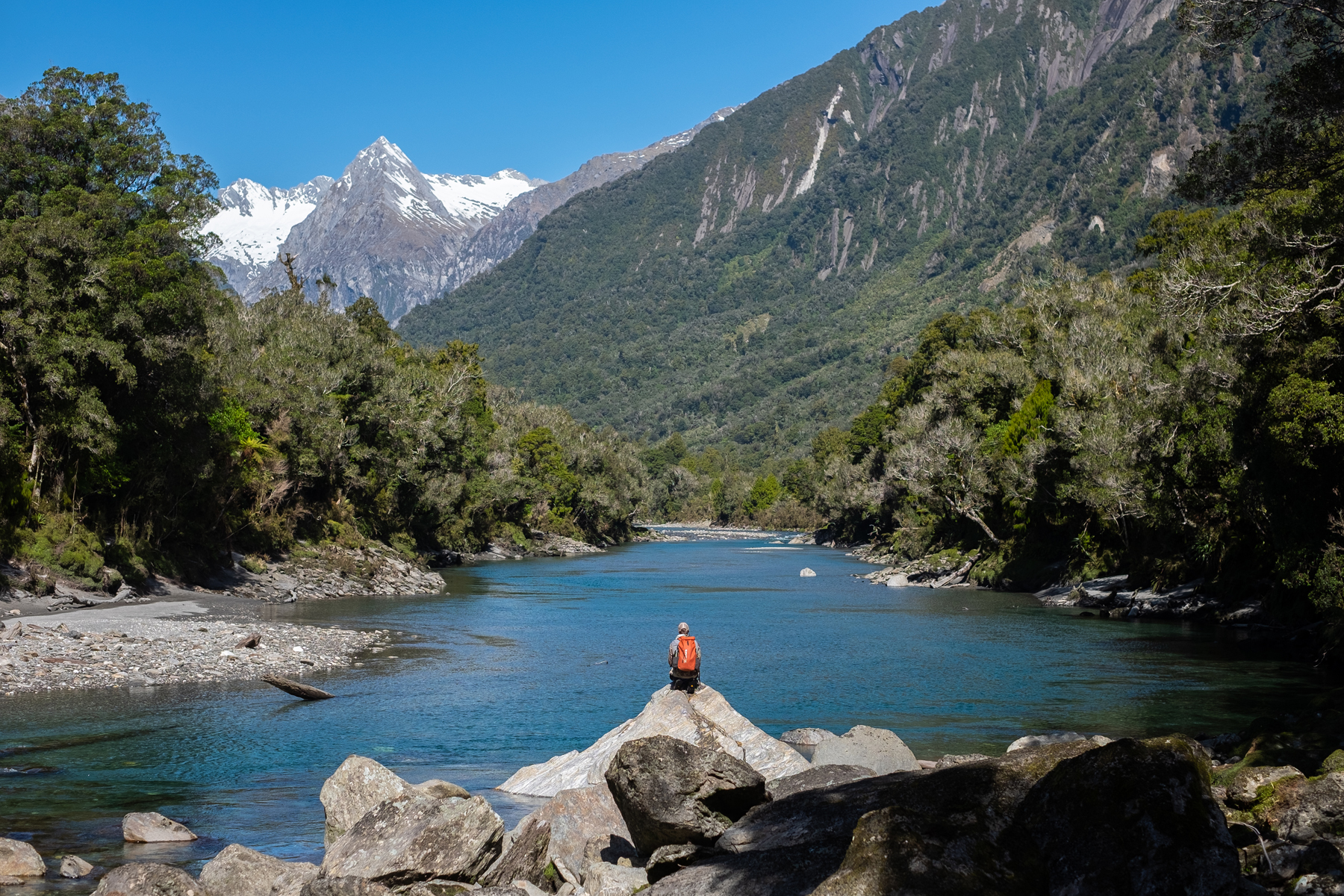
Right of access and safety tips:
• Do your research before leaving. If you are in need of access through private property, try to get in touch with landowners before leaving for your trip. Carry at least one form of communication device for safety. Always let someone know where you are heading and your estimated time of arrival.
• Do not disturb livestock, especially throughout the lambing season. Do not block gates and park your car in a safe way (being able to access the car battery in case of it being flat or being able to get towed out if your vehicle becomes stuck). Obey all signs, and use stiles when crossing fences.
• Rivers can rise very rapidly, so park away from banks. The same applies to camping spots. Choose wisely.
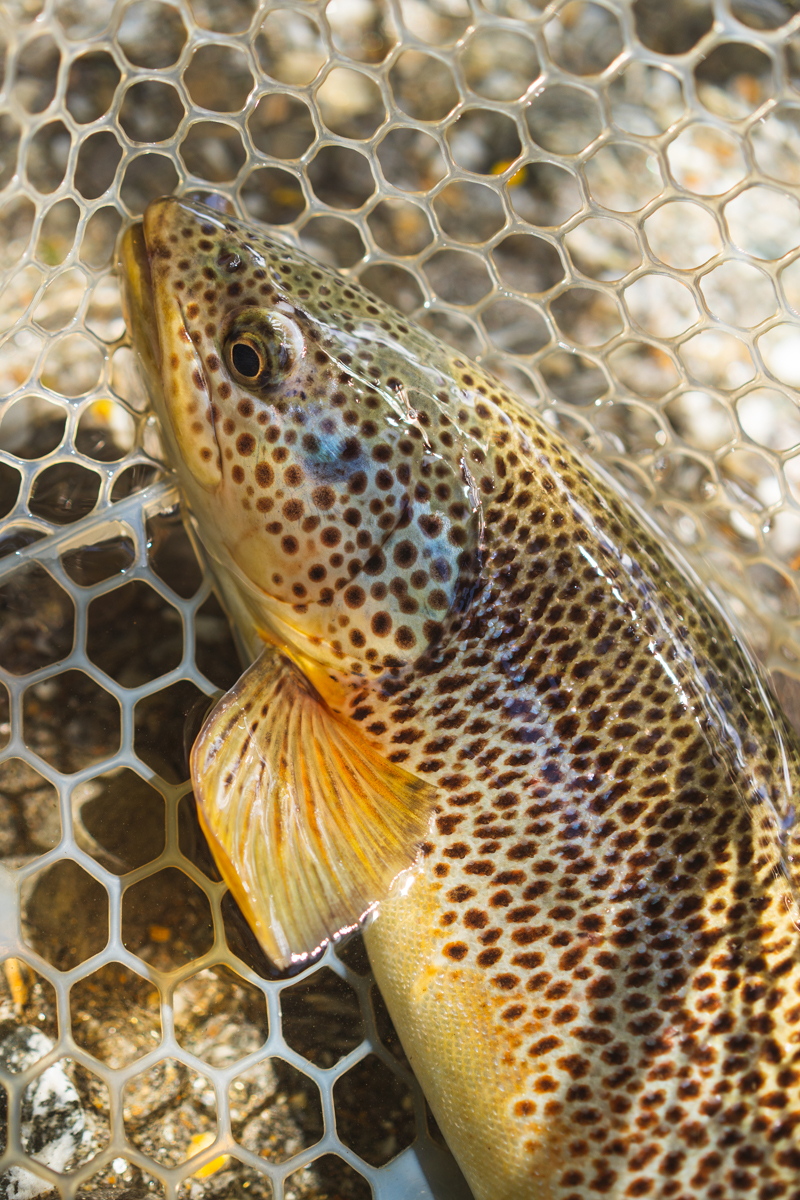
Catch and release
Many New Zealand rivers, especially in our more remote headwater areas, are rather fragile in terms of the fishery, particularly those trophy-producing streams. They simply cannot take a lot of pressure without suffering or declining in quality. If you intend to fish one of these gems, please keep these to yourself to ensure the health of the fishery in the future.
Whilst many rivers are regulated with a daily bag limit, it is important to realize the importance of C&R, especially on our more fragile headwater streams. Many of these waters may only host a handful of fish per kilometre, and these are often older, more established resident fish. Releasing the headwater fish, particularly the trophies, is extremely important.
